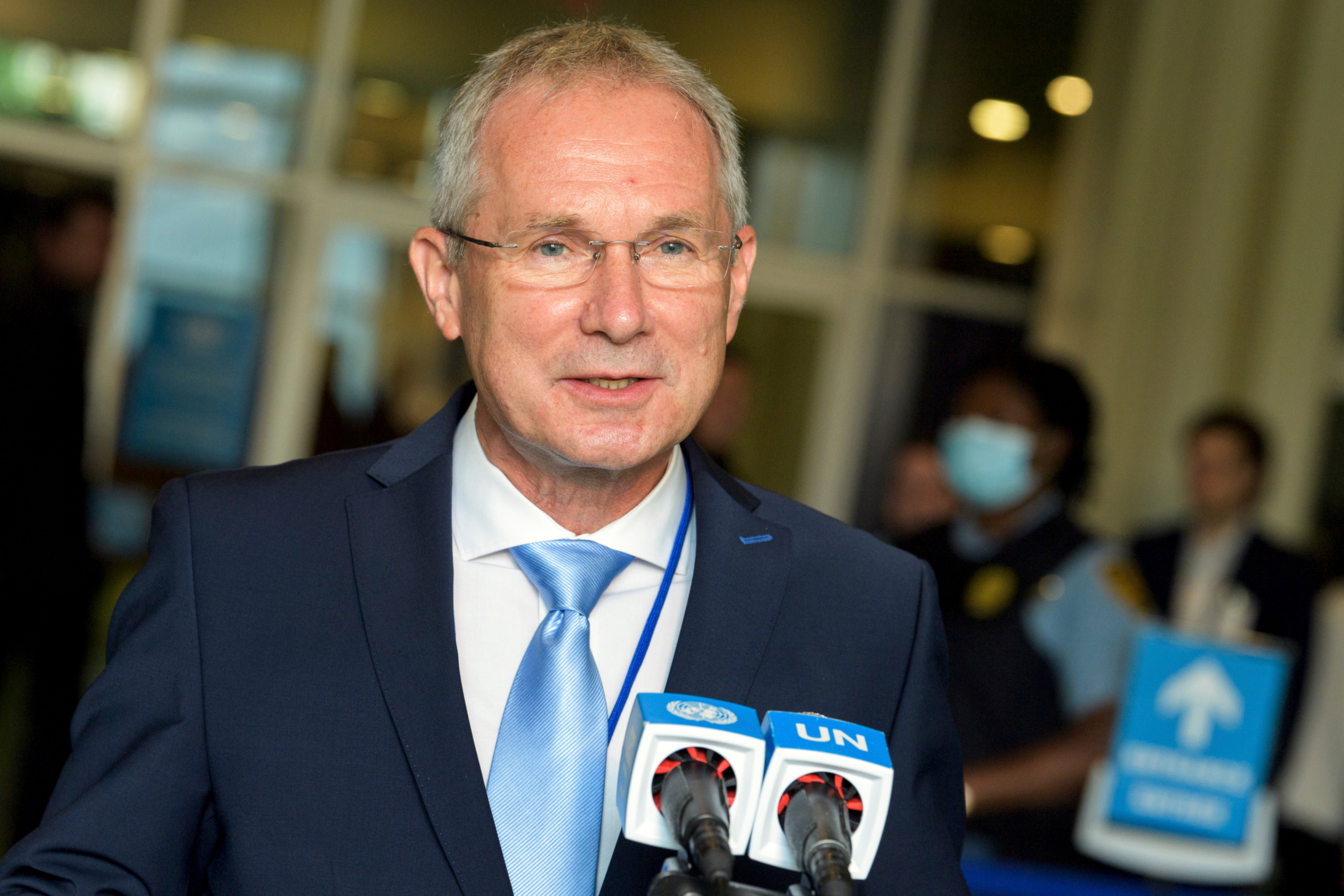Next UN assembly president warns world in dangerous crisis
Hungarian Ambassador Csaba Korosi has been elected as the next president of the U.N. General Assembly

Your support helps us to tell the story
From reproductive rights to climate change to Big Tech, The Independent is on the ground when the story is developing. Whether it's investigating the financials of Elon Musk's pro-Trump PAC or producing our latest documentary, 'The A Word', which shines a light on the American women fighting for reproductive rights, we know how important it is to parse out the facts from the messaging.
At such a critical moment in US history, we need reporters on the ground. Your donation allows us to keep sending journalists to speak to both sides of the story.
The Independent is trusted by Americans across the entire political spectrum. And unlike many other quality news outlets, we choose not to lock Americans out of our reporting and analysis with paywalls. We believe quality journalism should be available to everyone, paid for by those who can afford it.
Your support makes all the difference.Hungarian Ambassador Csaba Korosi was elected Tuesday as the next president of the U.N. General Assembly, and he warned immediately that the world is in the throes of a dangerous crisis and the credibility of the United Nations is at stake.
Korosi, who takes over the presidency of the 193-member world body in September, said there is “a red alert” for the global climate and crises in food, energy and water supplies. In addition, he said, people everywhere are still affected by the consequences of the COVID-19 pandemic, “the global economy is at the threshold of recession and the sovereign debts are at an unprecedented level.”
On top of that, conflicts this century -- including in Ukraine -- are fiercer and “a postcard from the future,” Korosi said.
When the United Nations was founded 77 years ago at the end of World War II, member states showed that “lasting peace can be built on the ashes of war,” Korosi said. But today, “we live in times that rock the foundation this organization was built upon, with multiple crises looming.”
He called for the same resolve today that the U.N.’s founding nations had “to stand up to the challenges that threaten international peace and security as well as our sustainable future on this planet.”
Korosi, a diplomat for nearly 40 years previously served in Libya, United Arab Emirates, Israel, Greece and the United Nations in New York. More recently, he served as deputy state secretary responsible for security policy, diplomacy and human rights.
He was elected president of the 77th session of the General Assembly by acclamation, without a vote. The assembly’s current president, Abdulla Shahid of the Maldives, banged his gavel signifying Korosi’s election.
Shahid noted that Korosi has chosen the theme “Solutions through Solidarity, Sustainability and Science” as the motto for his presidency.
He said it offers “a pragmatic view” of the assembly’s continuing work to promote a global recovery from the pandemic, tackle climate change and strive to meet the 17 U.N. development goals for 2030, starting with ending extreme poverty and hunger and including achieving gender equality and ensuring quality education for every child.
U.N. Secretary-General Antonio Guterres echoed Korosi’s concerns, saying: “We face a world in peril.”
“From the war in Ukraine in all its dimensions to the deepening impacts of the climate crisis; from the COVID-19 pandemic to escalating humanitarian needs, hunger and poverty, the months ahead will test the multilateral system,” he said.
He said the world looks to the General Assembly, where every country has a seat, “to debate, to forge consensus, and — most of all — to deliver solutions.”
Guterres said the year-long 77th session “can be a moment of transformation -- a time to recalibrate multilateralism and strengthen the foundations of global cooperation.”